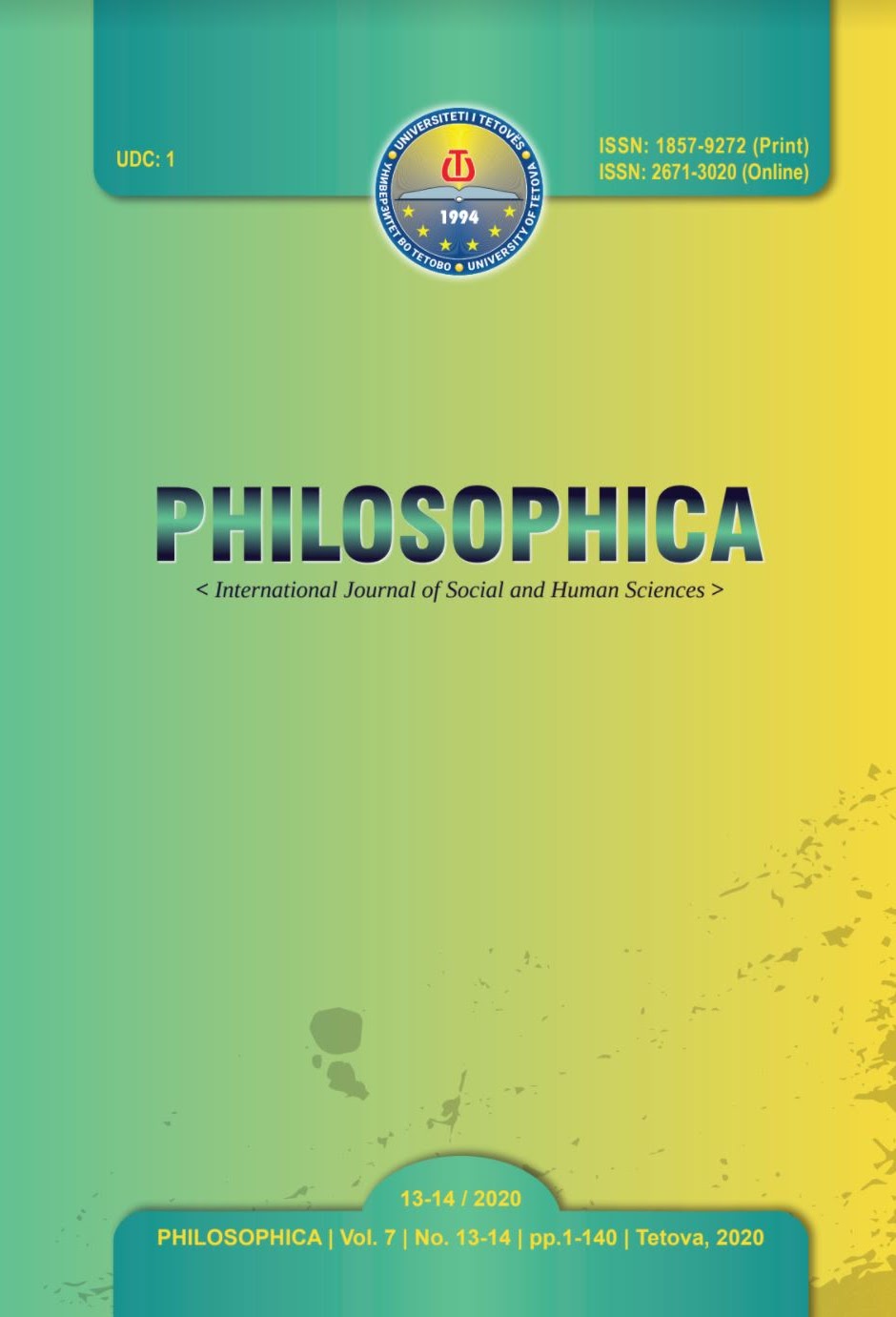USING MORAL ATTITUDES IN THE VIEW OF UTILITARIANISM AND DEFINING THE STAGES OF MORAL DEVELOPMENT ACCORDING TO KOHLBERG
USING MORAL ATTITUDES IN THE VIEW OF UTILITARIANISM AND DEFINING THE STAGES OF MORAL DEVELOPMENT ACCORDING TO KOHLBERG
Author(s): Kushtrim Ahmeti, Naser RAMADANISubject(s): Philosophy
Published by: University of Tetova
Keywords: Use of moral attitudes; utilitarianism; stages of moral development
Summary/Abstract: This study aims to find the relation between the level of use of moral attitudes from the point of view of utilitarianism and the stages of moral development according to Kohlberg. The methodology of the study is quantitative with a total of 200 subjects participating in the study. The utilitarian view revolutionized ethics by stating that morality is a matter of making the world happier and not a matter of pleasing God nor of being faithful to abstract rules. In fact, two of the emblematic utilitarian representatives, Bentami and J. S. Mill, insisted that there is only one moral principle the Benefit Principle, which requires that we choose whichever action, would have the best consequences for all concerned. On the other hand, Kohlberg defined the six stages of moral development, the fourth of which is the support of the social system and mindfulness, in which the good is understood as the performance of civic duty and as the support of the welfare of the group; while personal relationships are subject to the interests of the group. The correlation analysis suggests that there is a strong positive correlation between high level use of moral attitudes in terms of utilitarianism and the stage of conventional morality. Comparative analyses have shown statistically significant differences between high- and low-development.
Journal: PHILOSOPHICA International Journal of Social and Human Sciences
- Issue Year: 7/2020
- Issue No: 13-14
- Page Range: 70-78
- Page Count: 9
- Language: English

